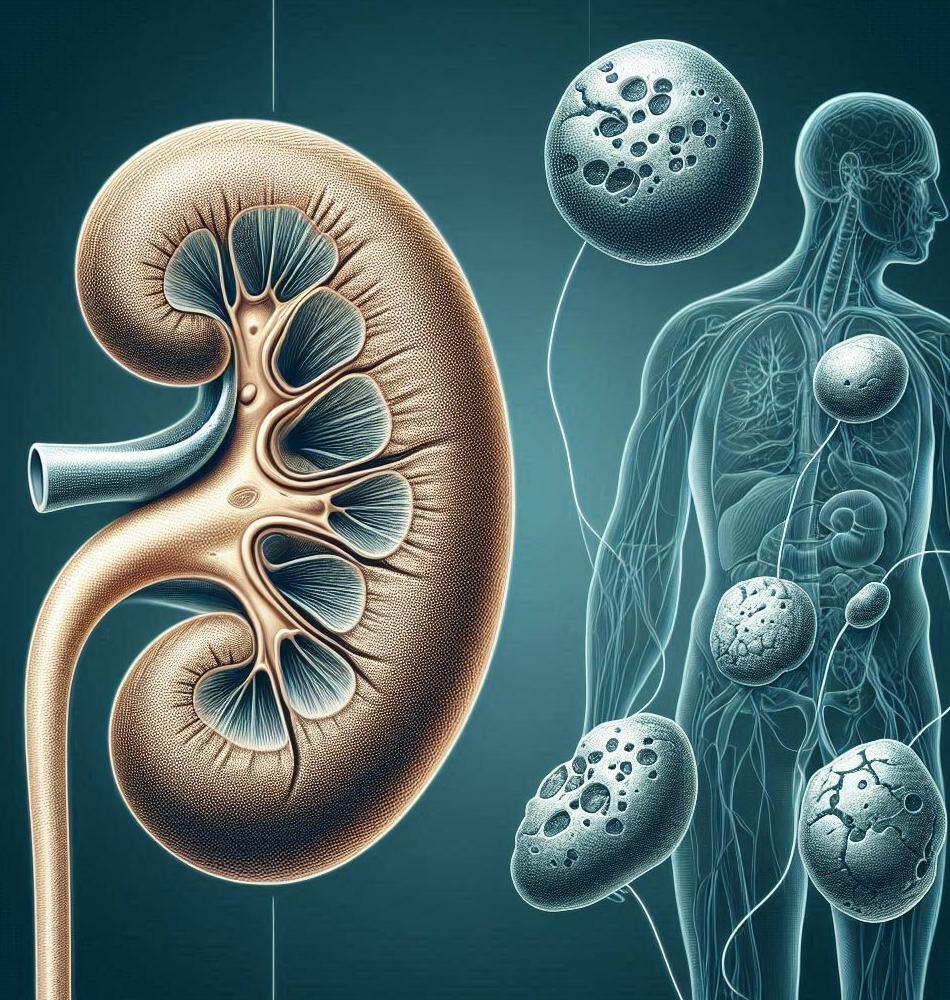Kidney stones are a common medical issue that can turn a seemingly ordinary day into an excruciating nightmare. Those who have experienced them often describe the pain as unbearable, akin to childbirth in intensity. This guide is here to help you recognize the signs and symptoms of kidney stones, understand their causes, and explore effective treatments and prevention strategies. So let’s dive into this important health topic and equip ourselves with knowledge for better health!
What Are Kidney Stones? 💧
Kidney stones are solid mineral and salt deposits that form inside the kidneys. They can vary in size from tiny grains to large stones that can obstruct the urinary tract. The most common types of kidney stones include:
- Calcium stones
- Struvite stones
- Uric acid stones
- Cystine stones
Understanding the characteristics of these stones can help with prevention and treatment. But before we delve deeper into symptoms, let’s visualize what these stones might look like.
Recognizing the Symptoms of Kidney Stones 🚨
Symptoms often arise suddenly and can escalate quickly. Here are common signs to watch for:
1. Intense Pain 🔥
The most notable symptom is severe pain that typically occurs in the back, side, abdomen, or groin. This pain can vary in intensity and can come in waves. Individuals often describe it as sharp or cramping.
2. Changes in Urination 🚻
If you notice alterations in urine patterns, it could be an indication of kidney stones. Symptoms can include:
- Pain during urination
- Frequent urination
- Cloudy or foul-smelling urine
- Blood in urine, which can give it a reddish or pink hue
3. Nausea and Vomiting 🤢
Along with the severe pain, some individuals may also experience gastrointestinal symptoms like nausea and vomiting. This can further complicate the situation, as it may lead to dehydration.
4. Fever and Chills 🌡️
If a kidney stone leads to an infection, you might also experience fever and chills. This is a serious symptom that requires immediate medical attention.
5. Difficulty Sitting Still 📏
Because of the intense pain, many individuals have trouble finding a comfortable position. They may find themselves constantly shifting or pacing to cope with the discomfort.
Common Causes of Kidney Stones ⚠️
Understanding the causes of kidney stones can be beneficial in preventing their formation. Here are some key factors:
1. Dehydration 💧
One of the most significant risk factors is not drinking enough fluids. Low fluid intake can concentrate minerals in the urine, leading to stone formation. It is essential to stay well-hydrated.
2. Diet 🍔
Certain dietary choices may increase the likelihood of kidney stones, including:
- High salt intake
- Excessive animal protein
- Foods high in oxalates such as spinach, beets, and chocolate
3. Family History 🏠
If you have a family history of kidney stones, your risk is increased. Hereditary factors play a crucial role in stone formation.
4. Medical Conditions 🏥
Some chronic illnesses, such as diabetes, obesity, and certain urinary tract infections, are correlated with a higher risk of stone development.
Treatment Options for Kidney Stones 💊
Fortunately, there are various treatment approaches depending on the size and type of kidney stone:
1. Pain Management 🛌
Over-the-counter pain relievers like ibuprofen or acetaminophen can help manage the discomfort associated with kidney stones.
2. Hydration 💦
Increasing fluid intake can facilitate the passage of smaller stones. Adequate hydration is crucial.
3. Medical Interventions 🩺
For larger stones, medical procedures may be necessary. Options include:
- Extracorporeal shock wave lithotripsy (SWL) - uses sound waves to break up stones
- Ureteroscopy - a thin tube is passed through the urinary tract to remove stones
- Percutaneous nephrolithotomy - a surgical procedure for large stones
4. Dietary Modifications 🍏
Making changes to your diet can also help prevent future stones. Speak with a nutritionist for tailored advice.
Preventive Measures for Kidney Stones 🛡️
Preventing kidney stones is achievable with lifestyle changes:
- Stay hydrated by drinking plenty of water daily
- Moderate your intake of salt and animal protein
- Incorporate more fruits and vegetables into your diet
- Avoid high-oxalate foods if you are prone to calcium oxalate stones
Frequently Asked Questions ❓
- What foods should I avoid to prevent kidney stones?
- Are there specific symptoms that indicate a kidney stone infection?
- How can I distinguish between kidney stone pain and back pain?
- How long does it typically take for a kidney stone to pass?
- What role does genetics play in kidney stone formation?
Final Thoughts on Kidney Stones Symptoms 🧠
Understanding the symptoms and causes of kidney stones is essential for effective management and prevention. By paying attention to your body and seeking medical advice when necessary, you can mitigate the discomfort and risk associated with these pesky stones. Staying proactive about your health will ensure you can enjoy life without the agony of kidney stones. So remember, hydration and a balanced diet are your kidneys' best friends!

